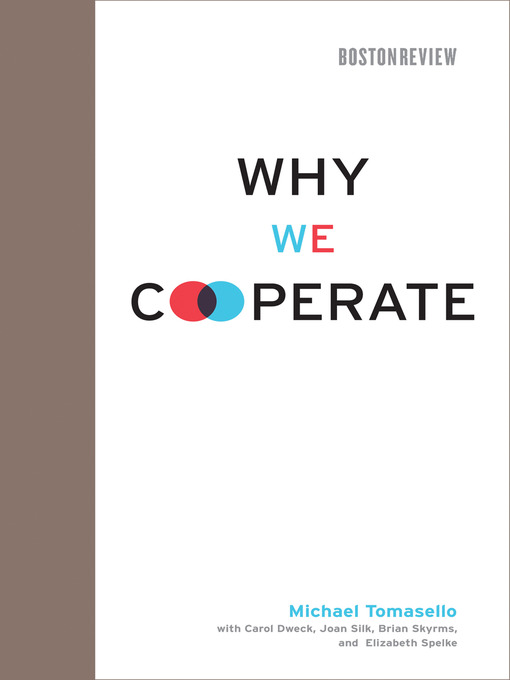
Why We Cooperate
Boston Review
کتاب های مرتبط
- اطلاعات
- نقد و بررسی
- دیدگاه کاربران
نقد و بررسی

August 10, 2009
Tomasello, codirector of the Max Planck Institute for Evolutionary Anthropology, shares his theories on how human cooperation evolved and suggests it is a defining characteristic of our species. To test the innate quality of cooperation in human interactions, Tomasello studies the cooperative behavior of preverbal children, generally 12 months to 24 months in age, and compares their behavior to that of apes in similarly structured experiments. The results are remarkable, demonstrating that even preverbal children have a natural predilection to cooperate and help others. Chimpanzees, on the other hand, especially where food is concerned, tend to act in ways that increase their own individual gain. Tomasello's writing is followed by contributions from four other leading scientists—John B. Silk, Carol Dweck, Brian Skyrns and Elizabeth Spelke—whose comments are illuminating, and while they do not fully agree with Tomasello, they all agree that “is cutting edge theory and research has altered the face of developmental psychology by merging cognitive and social development, historically quite separate fields.” The book (which originated as a lecture series at Stanford) is generally dryly scientific, but the fascinating approach to the question of what makes us human renders this a singularly worthwhile read.

























دیدگاه کاربران